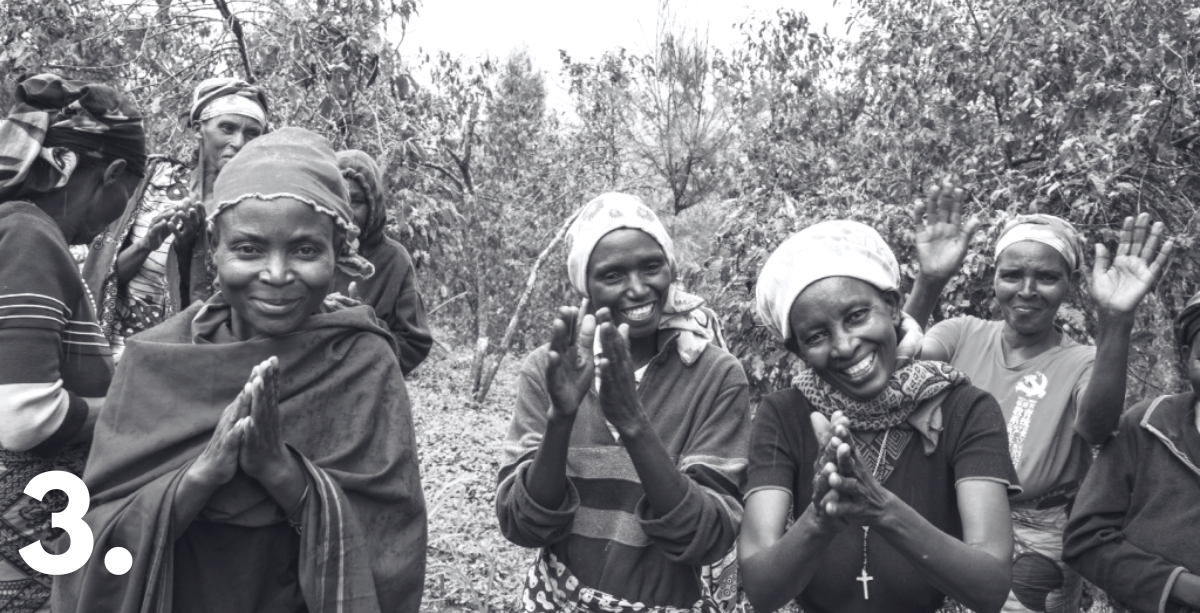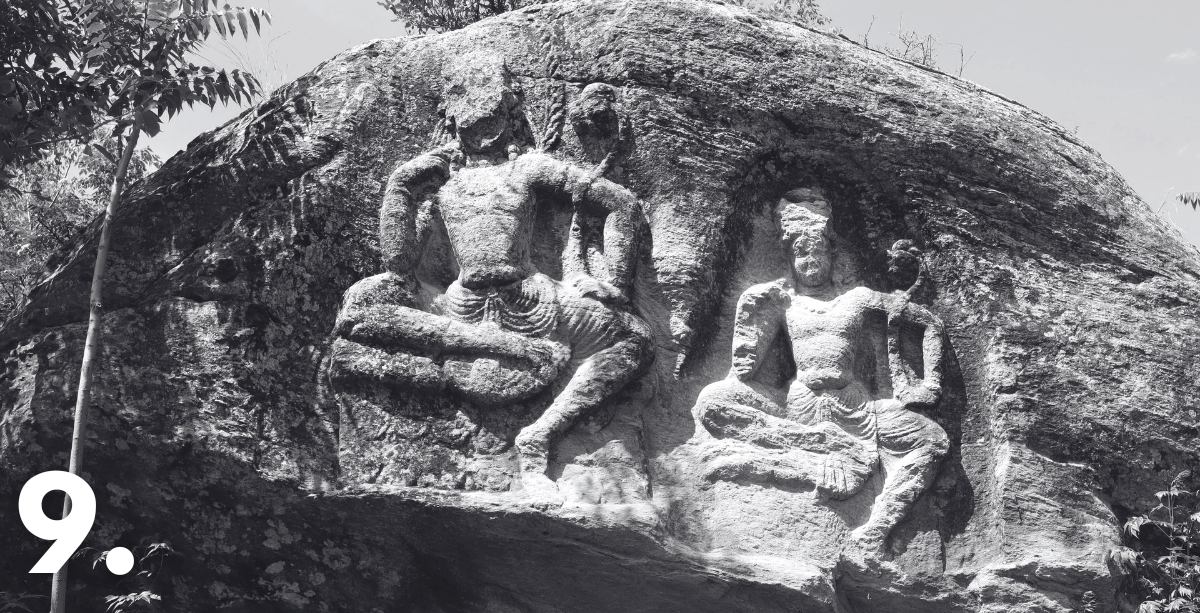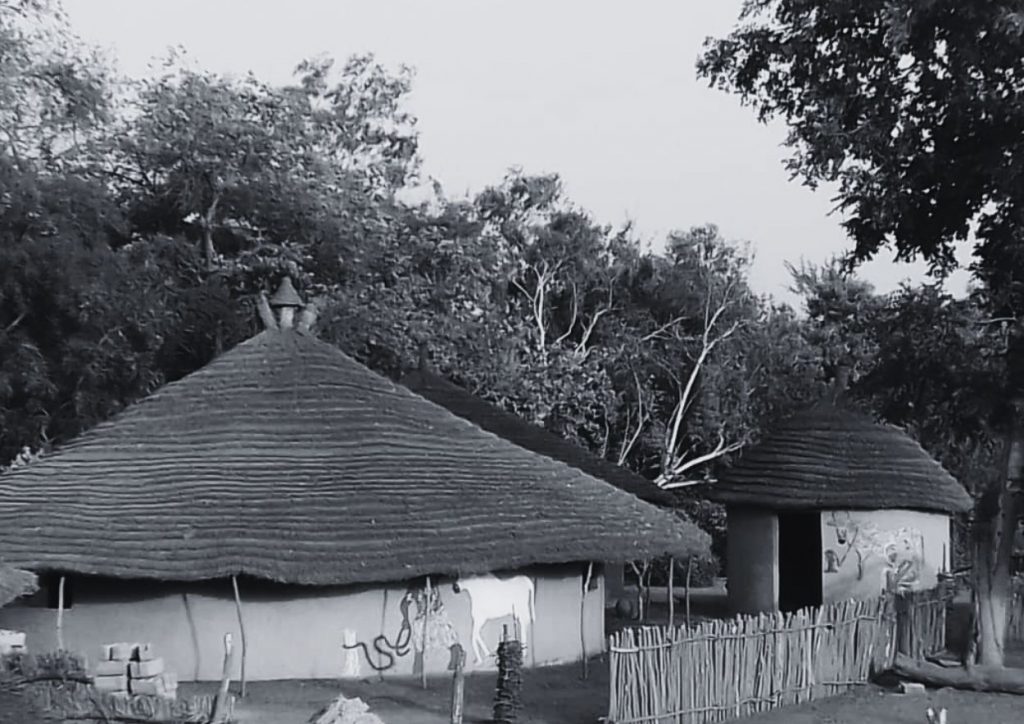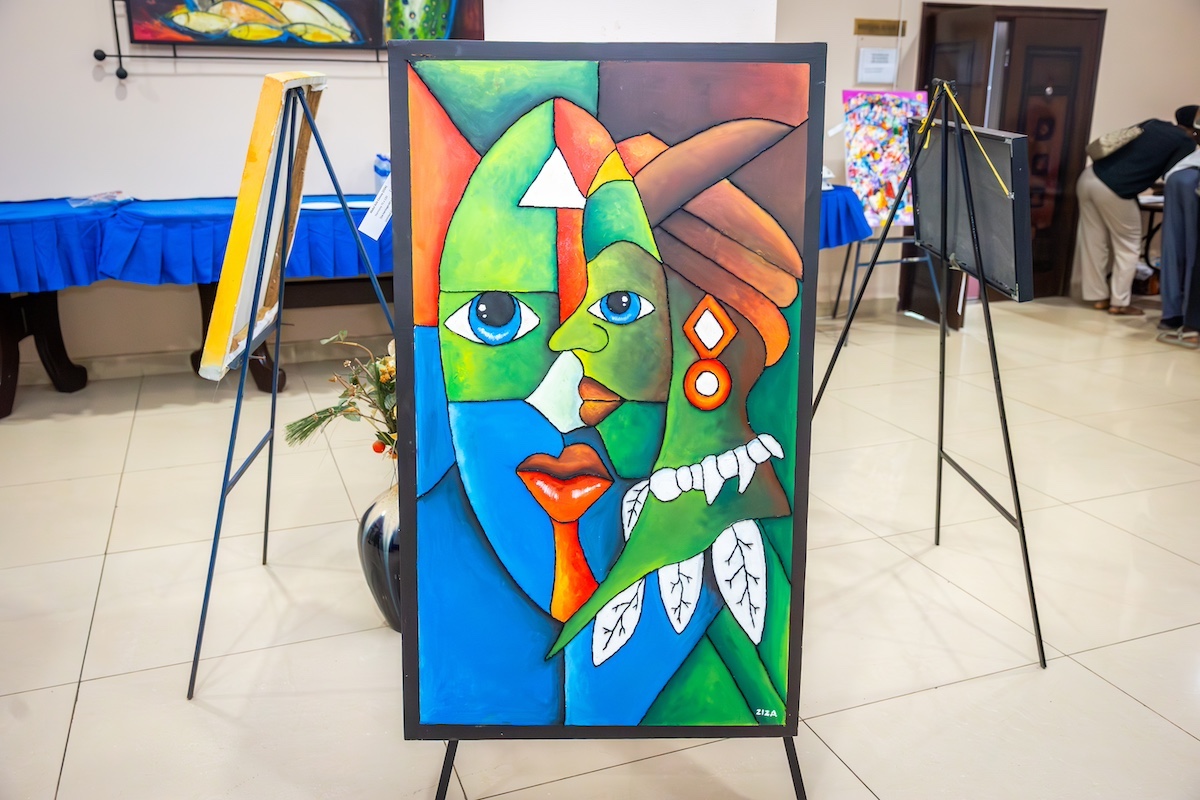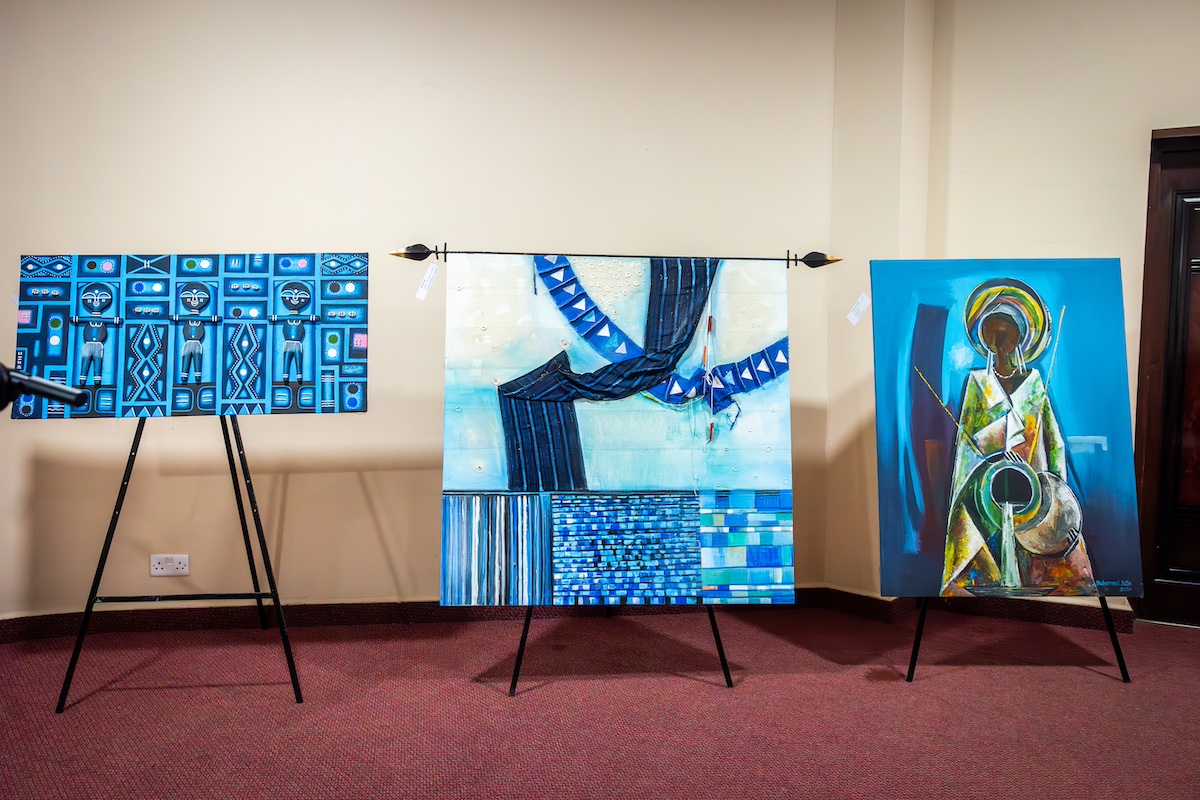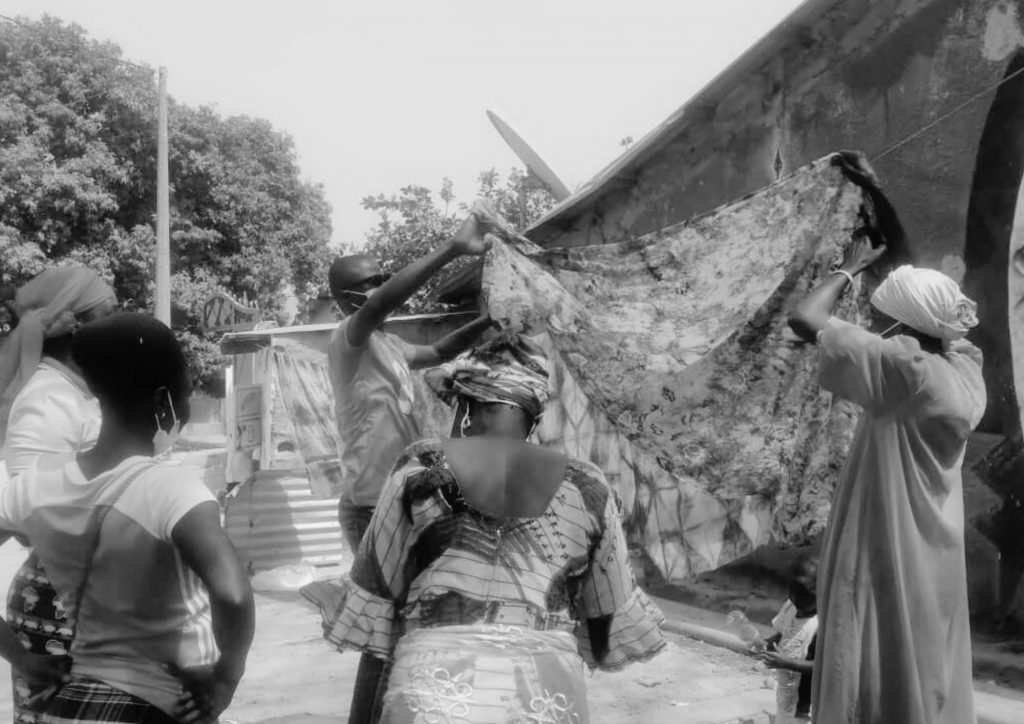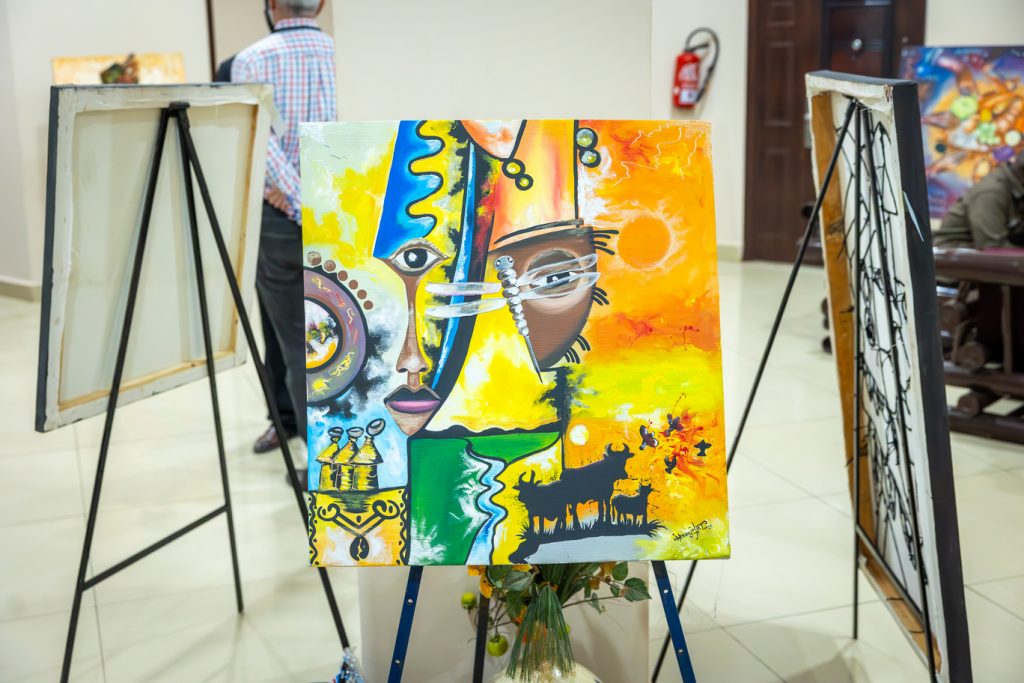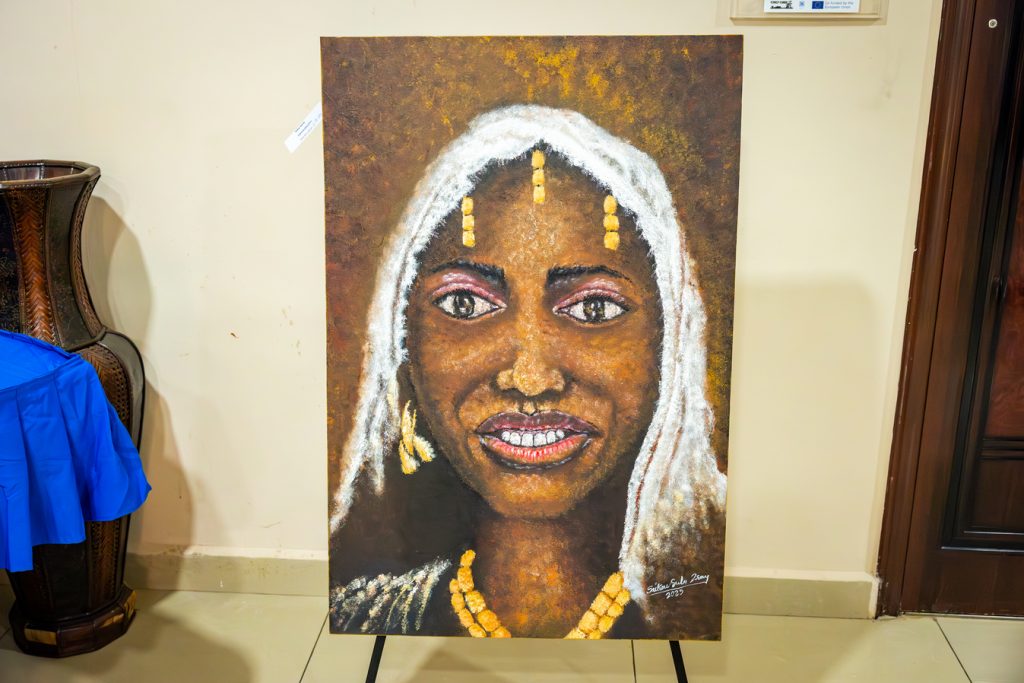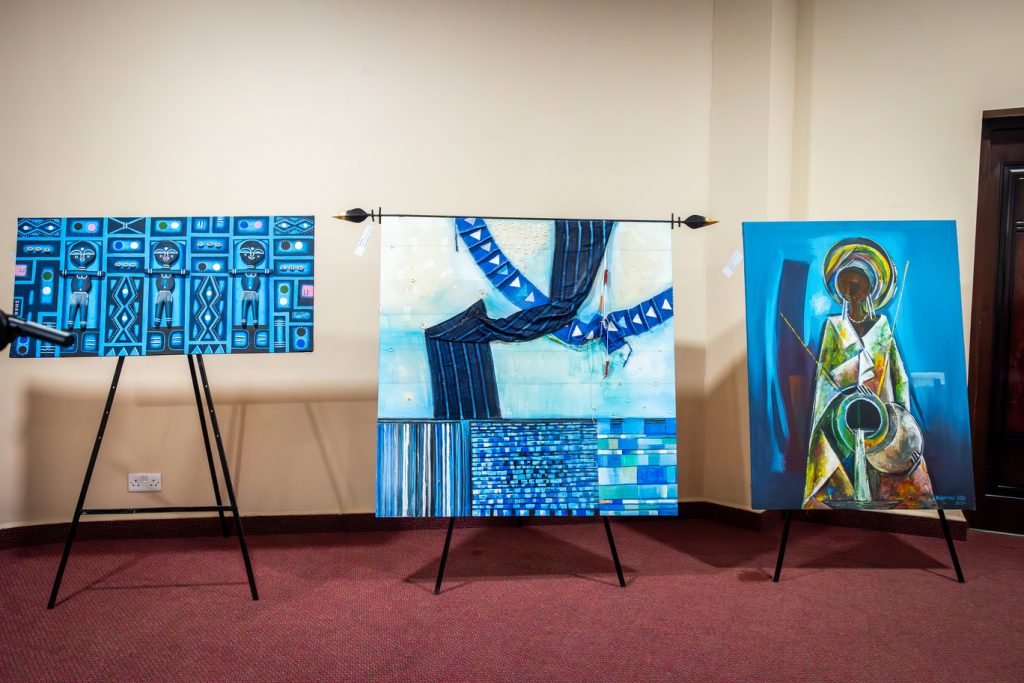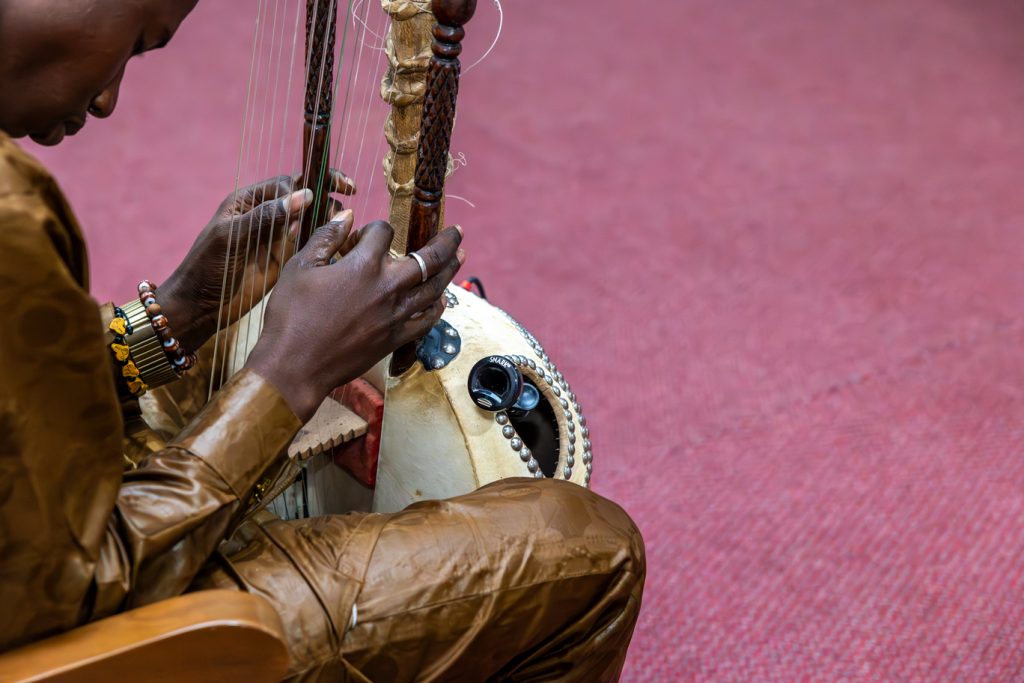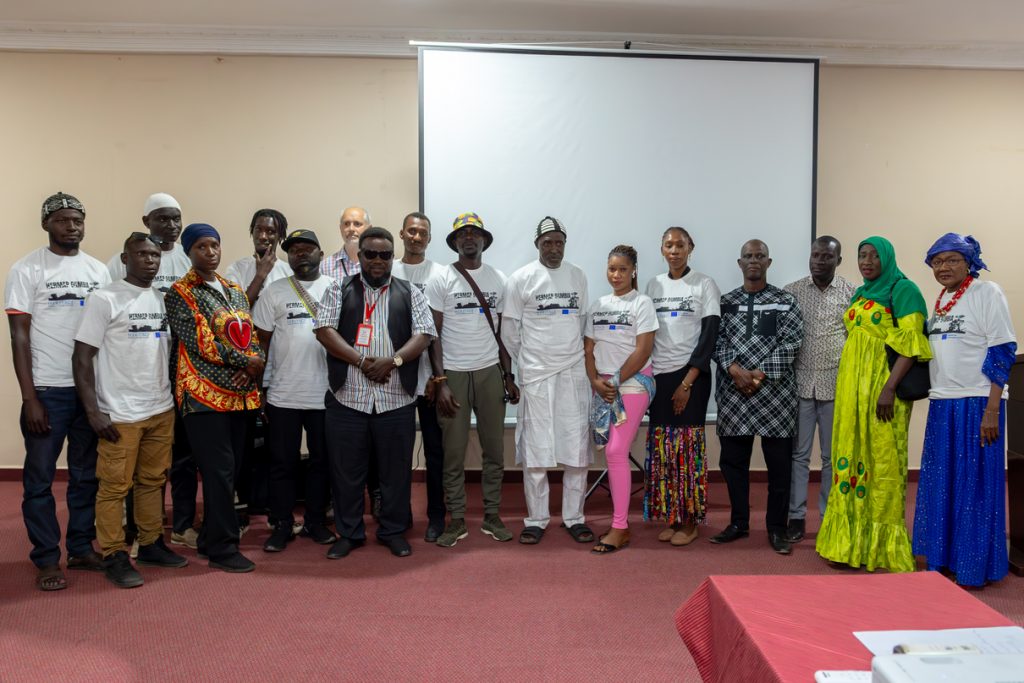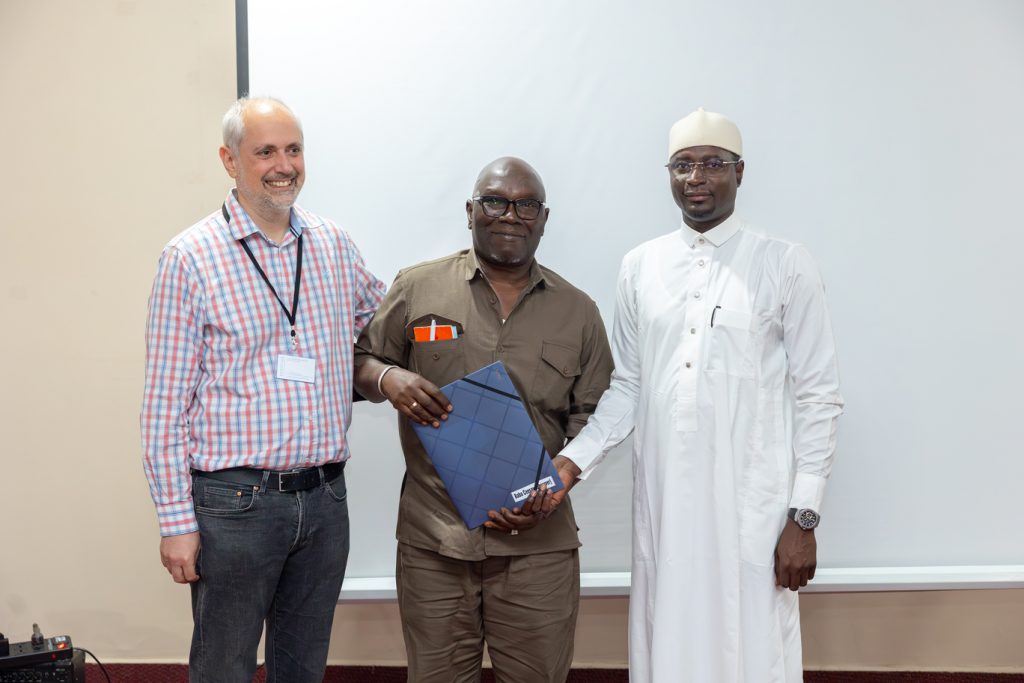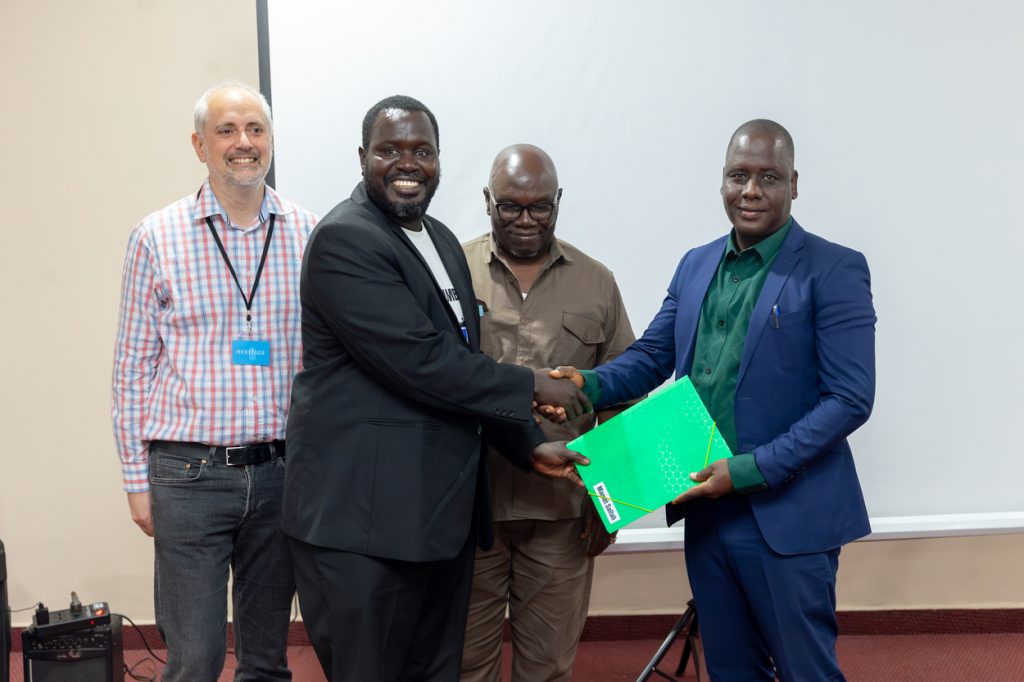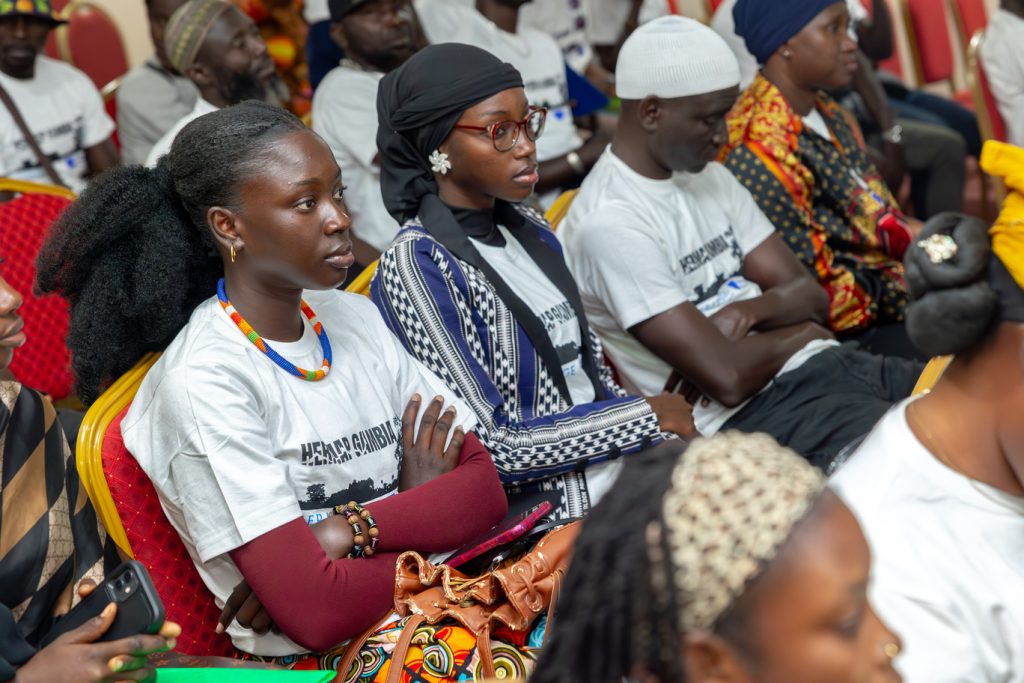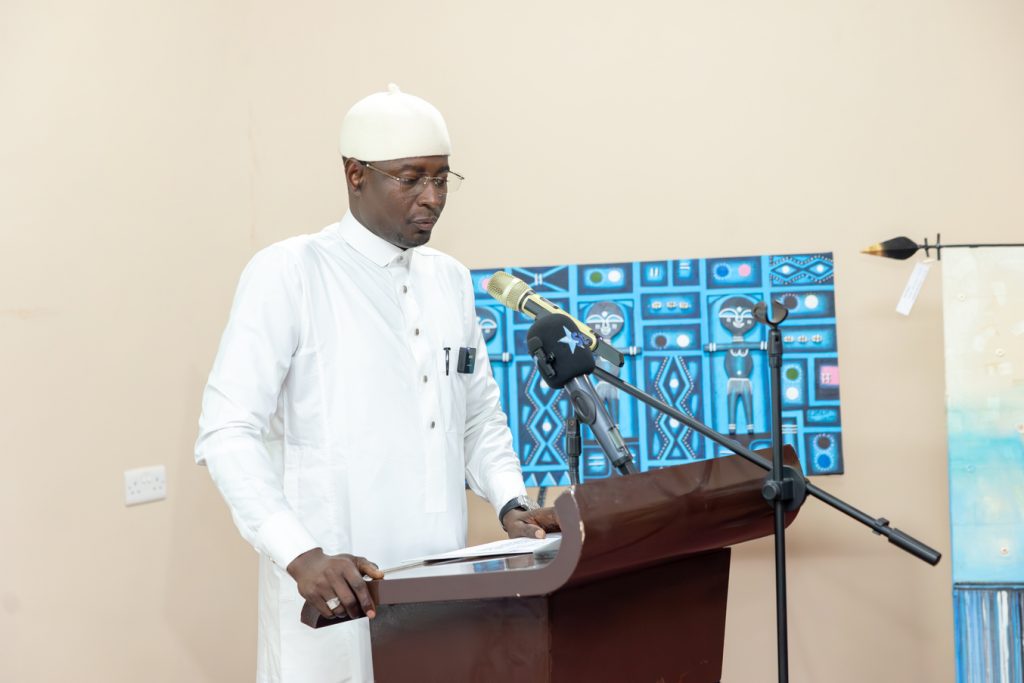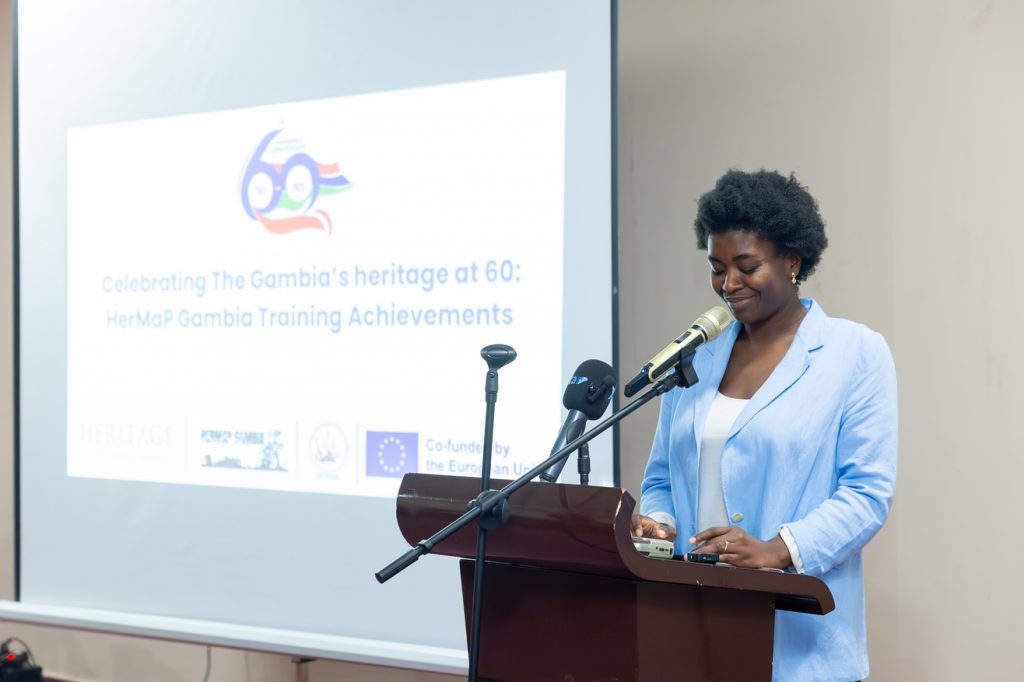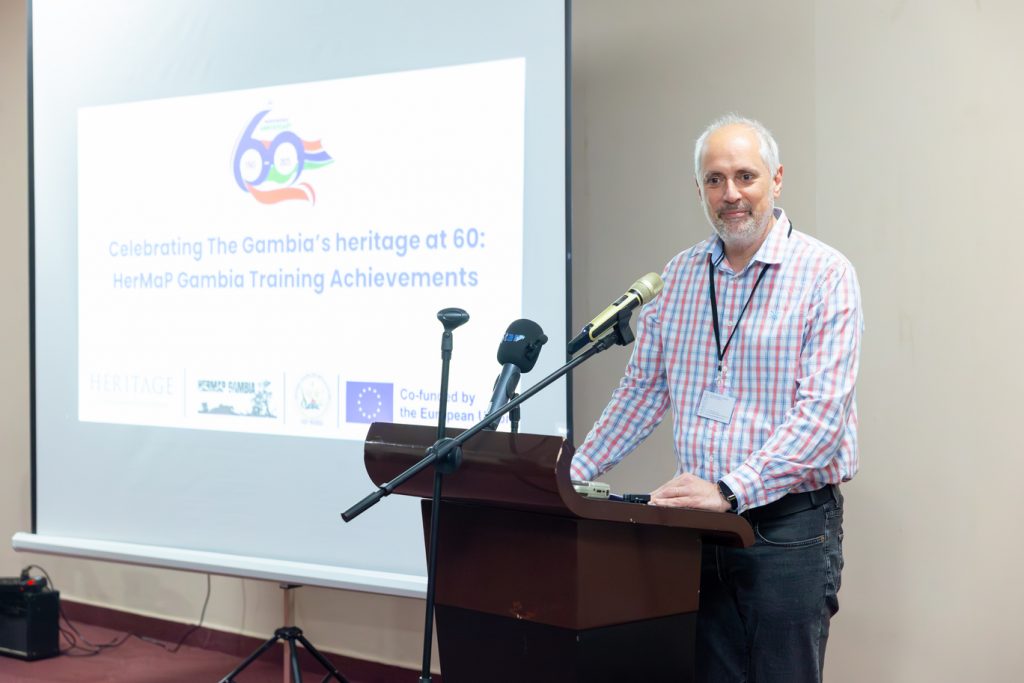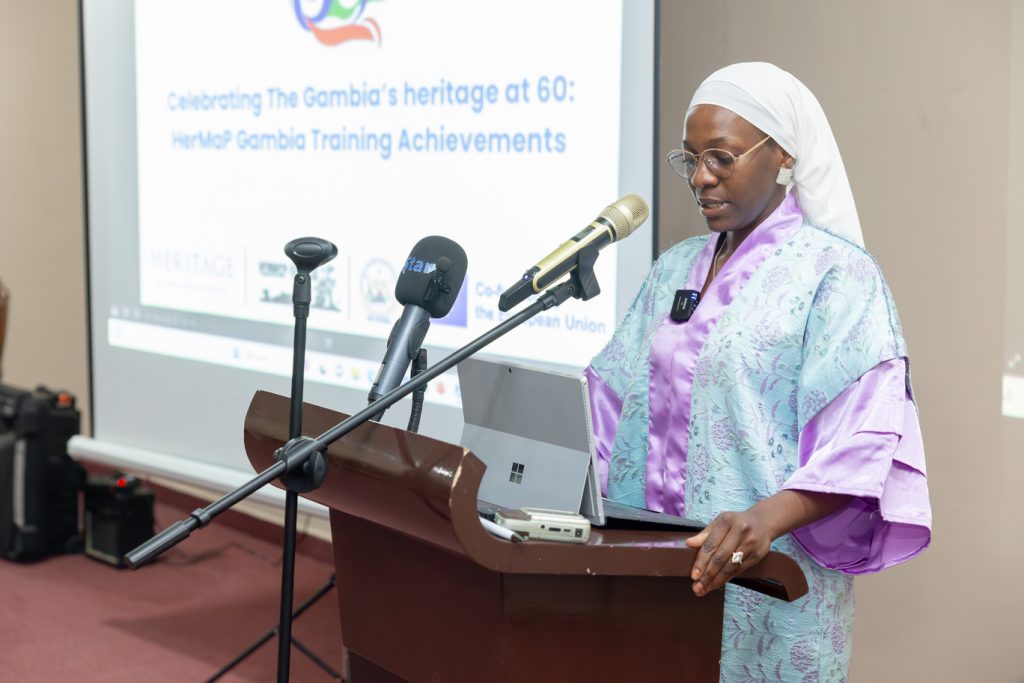Tag Archives: HerMaP Gambia
Training Artists, Telling Stories: HERITΛGE and VAAG Sign MoU in Banjul
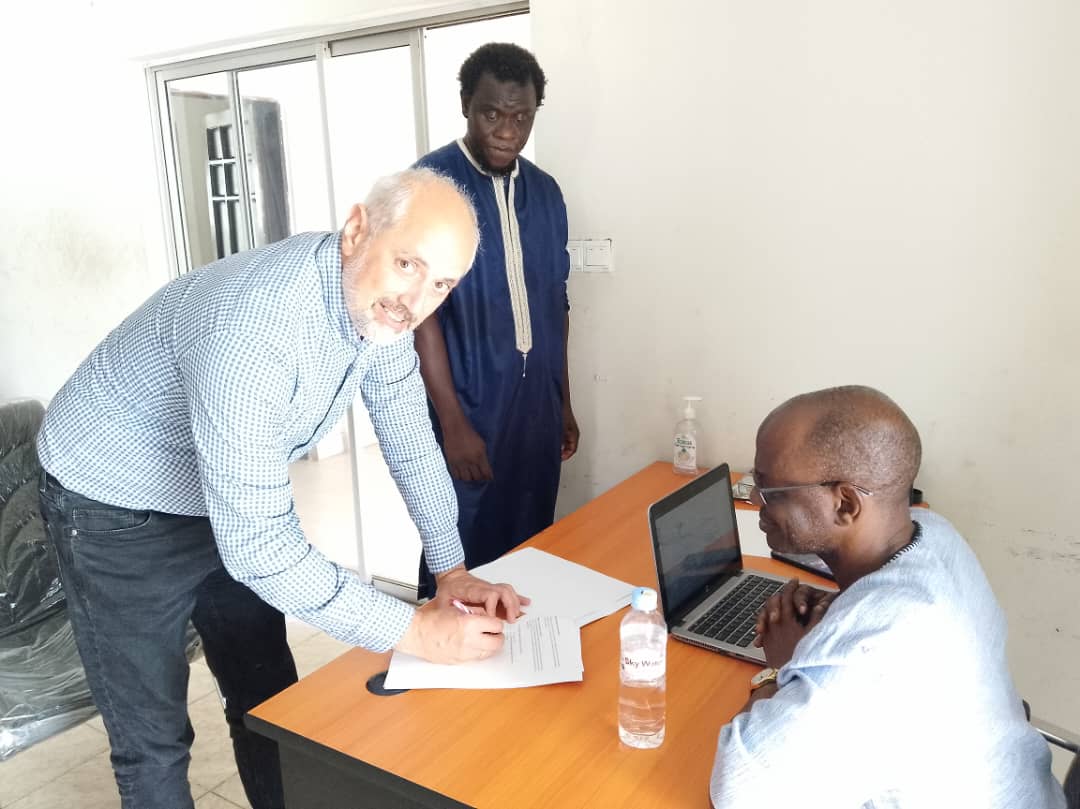 On Friday, July 18, The Heritage Management Organization (HERITΛGE) took another step forward in supporting The Gambia’s vibrant arts community by formalizing a partnership with the Visual Artist Association of The Gambia (VAAG) at the NCAC Pipeline Offices in Banjul.
On Friday, July 18, The Heritage Management Organization (HERITΛGE) took another step forward in supporting The Gambia’s vibrant arts community by formalizing a partnership with the Visual Artist Association of The Gambia (VAAG) at the NCAC Pipeline Offices in Banjul.
Dr. Evangelos Kyriakidis, Director of HERITΛGE, led a master class called “Telling Heritage Stories Through Art” for VAAG members. The session explored how visual art can become a bridge between past and present, helping communities preserve their stories while making them relevant for new generations.
The gathering drew important voices from The Gambia’s cultural landscape, including Mr. Hassoum Ceesay, Director General of the National Centre for Arts and Culture (NCAC), who emphasized the value of bringing together local institutions with international partners to strengthen heritage education.
By the end of the day, Mr. Modou Lamin Jatta, Chairman of VAAG, and Dr. Kyriakidis had signed a Memorandum of Understanding that opens doors for ongoing collaboration. The partnership promises more training opportunities, exhibition development, and chances for Gambian artists to share their heritage-inspired work with international audiences.
The collaboration is already showing results. This past February, VAAG organized a visual art exhibition during the HerMaP Gambia Certificate Award Ceremony, which marked The Gambia’s 60th Independence Anniversary. The exhibition showcased how contemporary artists are interpreting their nation’s story and contributing to conversations about identity and cultural memory.
HERITΛGE looks forward to continuing this work with VAAG and other local partners, creating spaces where heritage and creativity intersect. Together, they’re building platforms for artists to explore their history, connect with their communities, and imagine new possibilities for the future.
Community-Based Heritage Skills Training in Galloya: A Case Study in Women’s Empowerment through Traditional Textile Arts
At HERITΛGE we are happy to see our work create a lasting impact. We are particularly pleased to share a new initiative in The Gambia, the Galloya Street Art Tie & Dye and Batik Training for Women’s Empowerment, organised by Malick Kujabi. Malick is our focal representative in The Gambia and a HERITΛGE trainee himself. He has completed the Training of Trainers (ToT) programme, that HERITΛGE delivered to 30 individuals in the framework of HerMaP Gambia, an initiative to up-skill the country’s heritage, tourism, and sports sectors, co-funded by the European Union.
Malick’s recent training initiative is an inspiring example of how traditional craft skills can be mobilized to promote both cultural continuity and socio-economic development.
Project Overview
Implemented over a three-week period in the village of Galloya, close to the capital Banjul, the training focused on equipping 10 women with practical skills in Tie & Dye and Batik—textile techniques deeply rooted in West African visual culture. The workshop was structured around both technical instruction and applied learning, progressing from basic fabric preparation and design to advanced dyeing techniques, product finishing, and business development.
The training culminated in a community exhibition that not only served to showcase the participants’ work but also reinforced the social value of the craft within the broader community.
The initiative aimed to preserve and transmit traditional textile techniques, foster women’s economic empowerment through skills development, encourage entrepreneurship at the community level, and promote wider community engagement through participatory arts practices.
The training approach combined hands-on instruction with peer learning and included sessions on product design, branding, and marketing strategies. This integration of heritage practices with entrepreneurial training reflects a growing recognition of the role of cultural heritage in sustainable development frameworks.
Sustainability was at the core of the project design. Beyond the immediate training, participants will receive ongoing mentorship aimed at supporting micro-enterprise development. Plans are also underway to facilitate the formation of a cooperative to provide long-term support, market access, and collective visibility for the women’s products.
“This case highlights the potential of grassroots training initiatives to link cultural heritage preservation with social and economic development,” said Denise Navarro, HERITΛGE project manager for The Gambia. “The Galloya workshop demonstrates how ToT programmes can enable participants not only to internalise heritage practices but also to adapt and transmit them in ways that meet present-day needs.”
Transformational HerMaP Gambia project wraps up with an eye to the future
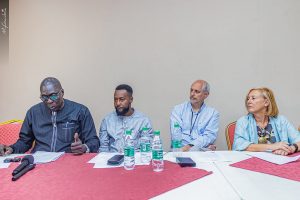
From Left to Right: The Gambia’s Tourism and Culture Minister, The Honourable Abdoulie Jobe, The Honourable Member of The Gambia’s National Assemnly Omar Jammeh, HERITΛGE Director Dr. Evangelos Kyriakidis, EU Head of Co-operation in The Gambia, Enrica Pellacani.
HERITΛGE has completed its transformational HerMaP Gambia project to upskill and help grow The Gambia’s cultural, tourism and sports industries with funding from the European Union. To celebrate the project’s achievements, take stock of progress and challenges and map out the next steps, a stakeholder event was held on February 24th in Banjul in the presence of The Honourable Abdoulie Jobe, Minister for Tourism and Culture.
“The future of HerMaP Gambia is for all of you to shape. Government, civil society, and the private sector must work together to safeguard The Gambia’s cultural heritage and transform it into a pillar of national pride and prosperity,” HERITΛGE Director, Dr. Evangelos Kyriakidis, told participants including members of parliament, representatives of the country’s National Centre for Arts and Culture (NCAC), the Gambia Tourism Board, the Institute for Travel and Tourism of The Gambia, the country’s foremost festivals and a series of cultural heritage projects.
Since its launch in 2020 HerMaP Gambia, that was co-funded by the EU, has: empowered over 250 individuals through capacity-building initiatives in 18 workshops, trained more than 30 trainers and supported 10 key cultural heritage initiatives, including the enhancement of the Fort Bullen Visitor Center, the creation of the Fulani Mud House Museum, and the revitalization of Juffureh Village Museum. An office has been established in Barra North Bank and a Study Tour was organized for the National Assembly’s Committee on Tourism, Culture and Sports in the framework of the program. HerMaP Gambia is also playing a crucial role in documenting and promoting The Gambia’s Intangible Cultural Heritage (ICH) with HERITΛGE hosting The Gambia’s ICH Register on its website.
As the project concludes, its impact will continue to inspire heritage managers and cultural entrepreneurs, ensuring The Gambia’s rich heritage is preserved and serves as a catalyst for sustainable growth.
As Enrica Pellacani, Head of Co-operation for the Representation of the EU in The Gambia pointed out “By protecting cultural heritage sites and museums, the government will be able to attract more tourists to these sites and this will encourage growth other related areas such as the production of local artisanal souvenirs, the hospitality industry, the tour guide sector, a whole ecosystem that can benefit from culture.”
A few days earlier, HerMaP Gambia had honoured its trainees during a Certificate Award Ceremony. Read more about this event here.
Celebrating The Gambia’s Heritage and HerMaP Gambia Certificate Presentation
On February 17, 2025, as The Gambia marked 60 years of independence, HERITΛGE celebrated the country’s rich cultural heritage and the dedicated individuals working to preserve it. Hosted at the Ocean Bay Hotel in Banjul, the HerMaP Gambia Certificate Presentation brought together over 100 participants, including heritage professionals, community members, heritage practitioners, tourism agencies, and government officials. The event formed part of the week-long official celebrations.
Guests were treated to a kora performance by Jali Foday Jobarteh while an exhibition of Gambian art was held alongside the event, organized in collaboration with the National Centre for Arts and Culture (NCAC) and the Visual Arts Association.
The celebration was part of HerMaP Gambia, a capacity-building initiative co-funded by the European Union (EU) and implemented by The Heritage Management Organization (HERITΛGE) in collaboration with local stakeholders. Since its inception in 2020, HerMaP Gambia has focused on empowering local communities, building institutional capacities, and fostering sustainable economic development through cultural heritage.
The ceremony was attended by government representatives, members of parliament, EU officials, and cultural leaders. Opening remarks from HERITΛGE representatives set the stage for the event, followed by a keynote address delivered by the Deputy Speaker of the National Assembly, the Hon. Seedy Njie. A presentation on the results of HerMaP Gambia highlighted its significant achievements, including 18 workshops, the training of over 200 individuals, and the awarding of more than 450 certificates of participation. The initiative has also supported over 10 community-based projects focused on intangible heritage, built heritage, sustainable tourism, and cultural industries.
A key moment of the event was the certificate presentation, where participants were recognized for their dedication to heritage preservation and management. Testimonials from trainees, including Fatima Muloshi and Mamat Sallah, provided personal insights into the impact of the training on their work and communities.
“It is a unique occasion and an honor for us to celebrate The Gambia’s heritage with all of you—the keepers of that heritage.” said Dr. Evangelos Kyriakidis, HERITΛGE Director
While Lumana Kamashi from the Delegation of the European Union to The Gambia pointed out to the guests and trainees that “the cultural heritage sector in The Gambia country has strong synergies with other industries, such as tourism and the creative arts.”
“Your efforts will ensure that future generations take pride in their heritage while embracing the opportunities of a more interconnected world,” she added.



